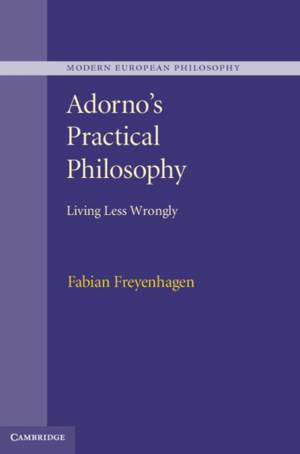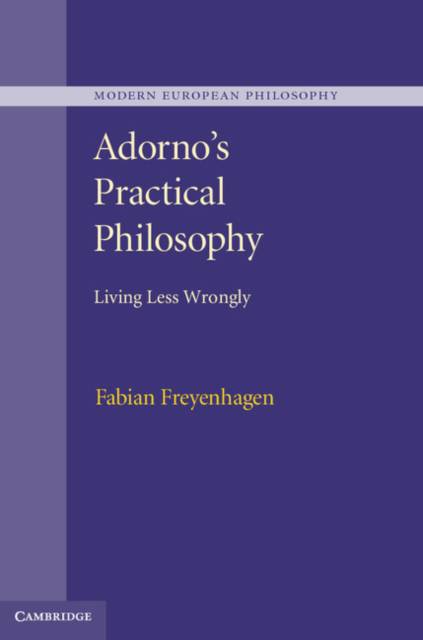
- Afhalen na 1 uur in een winkel met voorraad
- Gratis thuislevering in België vanaf € 30
- Ruim aanbod met 7 miljoen producten
- Afhalen na 1 uur in een winkel met voorraad
- Gratis thuislevering in België vanaf € 30
- Ruim aanbod met 7 miljoen producten
Zoeken
€ 172,95
+ 345 punten
Uitvoering
Omschrijving
Adorno notoriously asserted that there is no 'right' life in our current social world. This assertion has contributed to the widespread perception that his philosophy has no practical import or coherent ethics, and he is often accused of being too negative. Fabian Freyenhagen reconstructs and defends Adorno's practical philosophy in response to these charges. He argues that Adorno's deep pessimism about the contemporary social world is coupled with a strong optimism about human potential, and that this optimism explains his negative views about the social world, and his demand that we resist and change it. He shows that Adorno holds a substantive ethics, albeit one that is minimalist and based on a pluralist conception of the bad - a guide for living less wrongly. His incisive study does much to advance our understanding of Adorno, and is also an important intervention into current debates in moral philosophy.
Specificaties
Betrokkenen
- Auteur(s):
- Uitgeverij:
Inhoud
- Aantal bladzijden:
- 298
- Taal:
- Engels
- Reeks:
Eigenschappen
- Productcode (EAN):
- 9781107036543
- Verschijningsdatum:
- 9/09/2013
- Uitvoering:
- Hardcover
- Formaat:
- Genaaid
- Afmetingen:
- 155 mm x 231 mm
- Gewicht:
- 566 g

Alleen bij Standaard Boekhandel
+ 345 punten op je klantenkaart van Standaard Boekhandel
Beoordelingen
We publiceren alleen reviews die voldoen aan de voorwaarden voor reviews. Bekijk onze voorwaarden voor reviews.











